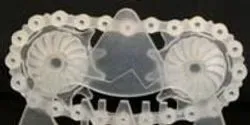News

Facing a challenge akin to solving a 1,000-piece jigsaw puzzle while blindfolded—and without touching the pieces—many structural biochemists thought it would be impossible to determine the atomic structure of a massive cellular machine called the nuclear pore complex (NPC), which is vital for cell survival.

The computer work happening inside the University of Kentucky Davis Marksbury Building is attracting worldwide attention.

Eve, an artificially-intelligent ‘robot scientist’ could make drug discovery faster and much cheaper, say researchers writing in the Royal Society journal Interface. The team has demonstrated the success of the approach as Eve discovered that a compound shown to have anti-cancer properties might also be used in the fight against malaria.

If you ask John Tester about Northern Arizona University’s technological strides during the past few years, be prepared for a long answer. In addition to teaching classes, the associate professor of mechanical engineering heads up the university’s RAPIDLab, home to 3D printers and other machines used to turn research ideas into prototypes.

The first comprehensive computer model to simulate the development of blood cells could help in the development of new treatments for leukaemia and lymphoma, say researchers at the University of Cambridge and Microsoft Research.

Vivian Wu, a professor of microbiology and food safety in the School of Food and Agriculture at the University of Maine, was interviewed by Food Safety Magazine about her latest research on food-borne pathogens

Find may answer the question: why was the wine of the Negev so renowned in the Byzantine Empire?














